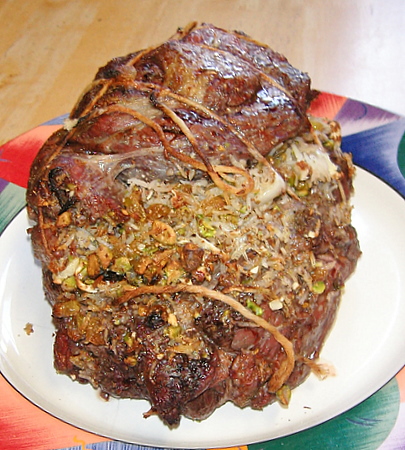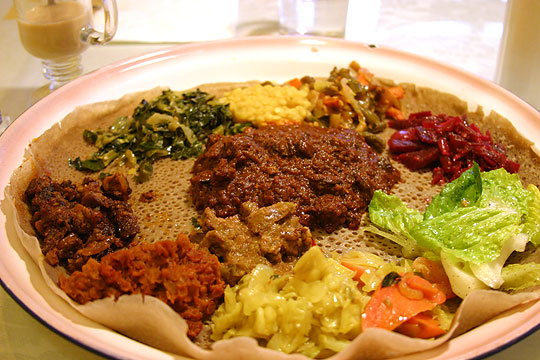Saudi Arabian Food

Saudi Arabian Food

Saudi Arabian Food

Saudi Arabian Food

These breads are used at every meal, in place of a fork or spoon, to scoop up other foods. Flat breads— fatir, a flat bread cooked on a curved metal pan over a fire, and kimaje, similar to pita—are the other mainstay of the nomadic diet that are eaten by all Saudis. Yogurt is eaten alone, used in sauces, and made into a drink called a lassi.
Camel (or sheep or goat) milk has long been the staple of the Bedouin diet, and dairy products are still favorites with all Saudis. According to Islamic law, animals must be butchered in a particular way and blessed before they can be eaten, so Saudi Arabia is the world's largest importer of live sheep. Lamb is traditionally served to honored guests and at holiday feasts. Saudis are strict Muslims and, following Islamic law, do not eat pork or drink alcohol. Saudis rank as the highest consumers of broiler chickens in the world, eating an average of 88.2 pounds of chicken per person per year.
Saudi Arabia has over 18 million date palms that produce 600 million pounds of dates each year. However, the basic ingredients are the same: fava beans, wheat, rice, yogurt, dates, and chicken are staple foods for all Saudis. The average meal of the Bedouin nomads who remain in Saudi Arabia is much simpler than that of the urban Saudis who make up the majority of Saudi Arabia's population today. The people of Saudi Arabia are very traditional and eat the same foods they have eaten for centuries.
Camel (or sheep or goat) milk has long been the staple of the Bedouin diet, and dairy products are still favorites with all Saudis. According to Islamic law, animals must be butchered in a particular way and blessed before they can be eaten, so Saudi Arabia is the world's largest importer of live sheep. Lamb is traditionally served to honored guests and at holiday feasts. Saudis are strict Muslims and, following Islamic law, do not eat pork or drink alcohol. Saudis rank as the highest consumers of broiler chickens in the world, eating an average of 88.2 pounds of chicken per person per year.
Saudi Arabia has over 18 million date palms that produce 600 million pounds of dates each year. However, the basic ingredients are the same: fava beans, wheat, rice, yogurt, dates, and chicken are staple foods for all Saudis. The average meal of the Bedouin nomads who remain in Saudi Arabia is much simpler than that of the urban Saudis who make up the majority of Saudi Arabia's population today. The people of Saudi Arabia are very traditional and eat the same foods they have eaten for centuries.
No comments:
Post a Comment